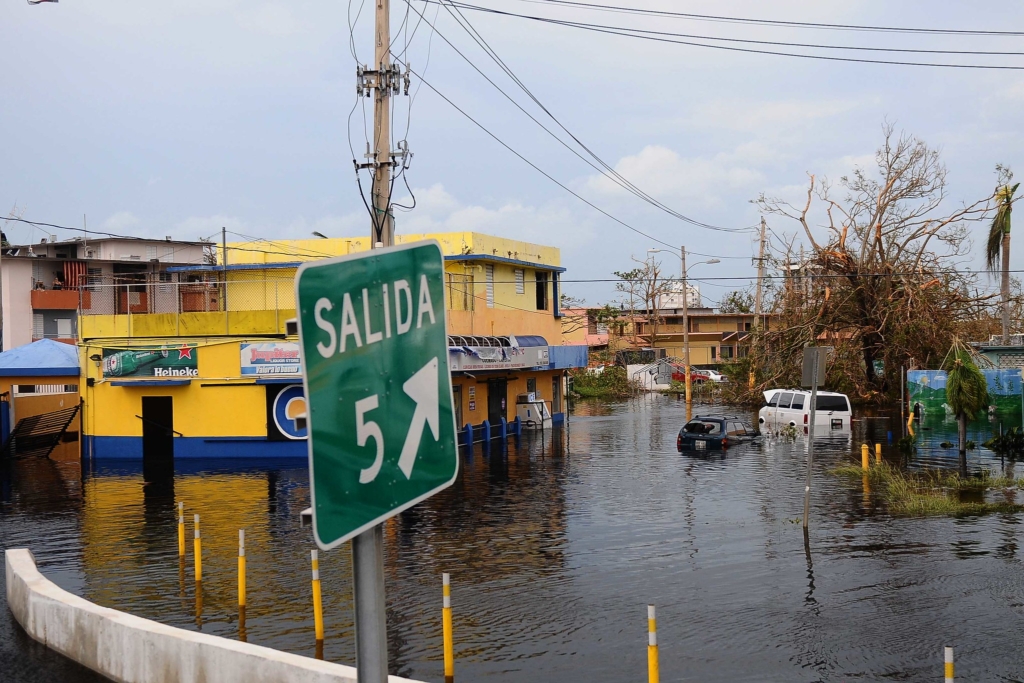Casebook Info
The lawsuit claims that major fossil fuel companies and their advertising partners misled the public about the risks of fossil fuels, leading to increased consumption, higher greenhouse gas emissions, and delayed progress toward clean energy. These actions, in turn, accelerated global warming and intensified climate-related harms that have severely impacted Puerto Rico’s vulnerable island communities and ecosystems. Using strict liability and consumer deception from tort law, the Commonwealth of Puerto Rico seeks remedy from the fossil fuel industry for past and future climate change damages, including at least $1 billion for environmental and economic losses, at least $1 billion for punitive damages, and the creation of a fund to support ongoing climate mitigation efforts.
- Year Filed 2024
- Year of Most Recent Ruling 2024
- Year of Final Ruling N/A
- Jurisdiction United States
- Court Name Tribunal de Primera Instancia
- Primary Focus Adaptation; Loss and Damage
- Ruling On N/A
- Plaintiff(s) Commonwealth of Puerto Rico
- Respondent(s) ExxonMobil Corp.; BP p.l.c.; Chevron Corp.; Chevron Phillips Chemical Puerto Rico Core, LLC; ConocoPhillips; Shell p.l.c.; Stations Managers of Puerto Rico, Inc.; TotalEnergies; and TotalEnergies Marketing PR Corp.
- Outcome Pending
- Organizational leader of the litigation N/A
- Link to the decision/ruling
Background
On September 20, 2017, Hurricane Maria made landfall on Puerto Rico’s southeast coast as a devastating Category 4 hurricane—the strongest to hit the island since 1928. With sustained winds of 155 mph and record-breaking rainfall of up to 38 inches, the storm caused catastrophic flooding, mudslides, and infrastructure failure. The island’s electrical grid collapsed, leaving 3.4 million residents without power and water, while 80% of communication systems were destroyed (Pasch et al., 2023; Pokhrel et al., 2021).
The devastation was staggering. In Puerto Rico and the U.S. Virgin Islands, Hurricane Maria caused an estimated $90 billion in damages—eclipsing the previous record-holder, Hurricane Georges (1998), by $85 billion (Pasch et al., p.7). More harrowing still, a study found that the storm’s true death toll was more than 70 times the official estimate, reaching 4,645 (Kishore et al., 2018). While Hurricane Maria’s destruction was unprecedented, it was not unpredictable.
As a tropical island, Puerto Rico is acutely vulnerable to climate change, experiencing longer dry periods, more extreme rainfall, declining biodiversity, and rising sea levels (Puleikis et al. 2023). These factors amplify the intensity of tropical storms, and Puerto Rico—due to its low-lying geography and hydrological landscape—is uniquely at risk, even among small islands (Ramos-Scharrón et al. 2021). The physical and environmental changes resulting from the climate crisis have compounded effects on Puerto Rico’s densely populated communities. These include higher medical and public health care costs, increased expenses for planning and adapting to climate impacts, and the displacement and disruption of coastal communities, leading to loss of life and damage to the Commonwealth. Additionally, Puerto Rico faces reduced tax revenues due to the adverse impacts on its tourism and ocean-based economy (¶26).
Puerto Rico’s Legal Battle Against Big Oil
The Commonwealth of Puerto Rico has spent billions rebuilding from climate-driven disasters like Hurricanes Irma and Maria—and the costs continue to mount. In response, Puerto Rico’s municipalities began taking legal action against fossil fuel corporations in 2022. Two separate cases were filed (Municipalities of Puerto Rico v. Exxon Mobil Corp. and Municipality of San Juan v. Exxon Mobil Corp.), both alleging that the named fossil fuel companies waged a decades-long, profit-driven disinformation campaign, making them responsible for the destruction resulting from the 2017 hurricane season and ongoing losses since then.
In 2024, the Commonwealth of Puerto Rico escalated the efforts being made by municipalities and sued Exxon Mobil, Chevron, Shell, ConocoPhillips, BP, and TotalEnergies, among others for a range of climate change impacts, including sea level rise, extreme weather events, ecosystem destruction, ocean acidification, air and water quality degradation, biodiversity loss, and extensive damage to public infrastructure and private property. The lawsuit argues that these companies knowingly fueled climate change through fossil fuel production while deliberately misleading the public about its dangers. The case also names TotalEnergies Marketing Corporation, further tying industry-wide deception to the climate impacts and disasters battering Puerto Rico.
To avoid saddling only Puerto Rico’s taxpayers and residents with the cost of climate change impacts, the Commonwealth seeks to hold the defendants financially accountable for their decades-long misinformation campaign by demanding: compensatory damages of at least $1 billion, punitive damages of at least $1 billion, and an order requiring defendants to contribute to a fund to mitigate the ongoing nuisance they caused—covering the costs of strengthening public infrastructure against sea level rise and storm damage, restoring natural resources, funding local climate resilience measures, and rebuilding natural barriers to protect communities. The Commonwealth also seeks damages for violations of the Antitrust and Restraint of Trade Act and a permanent injunction to prevent the defendants from continuing the unlawful practices described in the complaint.
“Defendants’ concealment and misrepresentation of the known dangers of fossil fuel products, coupled with their simultaneous promotion of the unbridled use of those products, drove fossil fuel consumption and delayed the transition to a low-carbon future, resulting in increased greenhouse gas pollution and more severe impacts of the climate crisis in Puerto Rico” (¶27).
Decades of Climate Deception
The lawsuit outlines how, since the 1960s, fossil fuel companies’ own scientists warned that burning fossil fuels produces carbon dioxide and other greenhouse gases with catastrophic consequences. Instead of heeding these warnings, these companies quietly protected their own infrastructure from rising sea levels, stronger storms, and other impacts of climate change — while publicly denying or downplaying climate science.
Rather than inform consumers, fossil fuel corporations launched a systematic disinformation campaign to obscure climate realities, casting doubt on scientific consensus and delaying the transition to clean energy (¶15).
Present-Day Misinformation and the Role of Advertising
The lawsuit specifically targets the role of fossil fuel promotion and sale in Puerto Rico. The complaint highlights how TotalEnergies Marketing PR Corp. promoted its products through Facebook ads while omitting any mention of their role in global warming (¶10). It further details how defendants marketed fossil fuels in Puerto Rico through major publications like The New York Times, Time Magazine, The Washington Post, and The Wall Street Journal (¶3).
Beyond direct advertising of their products, fossil fuel corporations have long operated through trade associations or industry trade groups —such as the American Petroleum Institute (API), Information Council for the Environment (ICE), and Global Climate Coalition (GCC)—that have allegedly promoted misinformation about the climate impacts of fossil fuel products among consumers. The complaint alleges that these groups generated climate disinformation and advocacy from a supposedly objective source, when, in fact, they were funded and controlled by defendants. The defendants, the complaint alleges, benefited from the dissemination of this disinformation because, among other things, it has ensured a thriving consumer market for oil and gas, generating substantial profits for the defendants (¶32).
To this day, defendants allegedly continue to deceive the public by falsely and misleadingly promoting their products as beneficial to the climate and positioning themselves as advocates for a shift to a low-carbon future, without warning that consumption of their products is the primary driver of climate change (¶67). The complaint indicates that the defendants’ campaign of deception has been widespread and long-lasting, influencing the public’s purchasing and investment decisions for decades by driving increased demand for fossil fuels. This campaign allegedly reduced demand for and investment in clean energy and delayed Puerto Rico’s transition to clean energy. Increased demand led directly to a prolonged increase in greenhouse gas emissions and is a purported substantial factor causing climate damage in Puerto Rico (¶43).
As a result, Puerto Rico claims that the prolonged and increased greenhouse gas emissions, therefore, caused climate impacts namely sea level rise, alteration of the hydrological cycle, more frequent and intense hurricanes, tropical storms and extreme precipitation and associated flooding, more frequent and intense heat waves along with an exacerbation of localized heat island effects, more frequent and intense droughts, ocean acidification, destruction of coral reefs and mangrove forests, degradation of air and water quality, and loss of habitats and species. In turn, Puerto Rico has suffered and will continue to suffer severe damages, including damage and loss of governmental or state-owned property, natural resources private property, and businesses with the consequent loss of tax returns, as well as increased costs of providing public services and risk management that are essential to the health, safety, and welfare of the community, among others (¶26).
Seeking Compensation for Damages from Climate Change
“Plaintiff seeks to ensure that the parties that have profited from the deception of consumers and the public about climate change bear the costs of that deceptive commercial activity, rather than the Commonwealth of Puerto Rico, its taxpayers, or its residents or citizens” (¶30).
The human, natural, and economic devastation caused by Hurricanes Irma and Maria in 2017 is a foretaste of the severe weather-related consequences facing Puerto Rico, which the complaint argues are a direct result of the named fossil fuel majors’ unlawful deception in promoting their products (¶25).
Relying on traditional tort law and environmental public policy law, the Commonwealth argues that the defendants should compensate Puerto Rico for past and future damages from climate change. The suit lays out the five bases for their argument against fossil fuel majors:
- Environmental Public Policy and Public Nuisance Law – The first cause of action states that the defendants’ conduct caused significant environmental and economic harm, violating the law and Puerto Rico’s environmental public policy, constituting a public nuisance. This includes promoting and selling fossil fuels despite knowing their dangers and potential adverse climate impacts. The resulting damage to public health and property has interrupted the Puerto Ricans’ free use of property such that comfortable enjoyment of life or property is impeded, giving rise to a claim for public nuisance.
- Non-Contractual Damages and Losses for Culpable or Negligent Acts of Omissions – The second cause of action alleges that the defendants violated their duty of reasonable care—a requirement to act reasonably and avoid causing harm, imposed due to their special relationship with the public as suppliers of fossil fuels. Despite their superior knowledge of the harmful climate impacts of fossil fuel consumption, they failed to provide adequate warnings, promoted fossil fuels, and spread misinformation. Their negligent actions foreseeably caused significant environmental, economic, and social damages to Puerto Rico, with estimated losses of no less than $1 billion.
- Strict Liability for Distribution and Sale of Defective Products due to Lack of Adequate Warnings – The third cause of action alleges that the defendants are strictly liable under the Civil Code of Puerto Rico, which provides that “[p]ersons who sell in the stream of commerce a product that by its design or manufacture is unreasonably dangerous, are liable for the damages caused by such product, even if they do not incur in fault or negligence.” The defendants failed to exercise reasonable care in the commercialization, promotion, sale, and distribution of fossil fuel products that they had known for decades would negatively impact the climate and public health. Therefore, the complaint alleges, they are liable to the Commonwealth of Puerto Rico for the damages caused to its natural resources and environment, as well as to its infrastructure and public property.
- Punitive Damages – The fourth cause of action seeks punitive damages under Puerto Rico law, which allows additional damages for conduct committed maliciously or with gross disregard for life, safety, and property. The complaint alleges that the defendants knowingly concealed the climate dangers of fossil fuel consumption, misled the public through deceptive marketing, and promoted fossil fuels despite their harmful effects. These actions intentionally increased fossil fuel consumption, delayed the transition to clean energy, and caused severe climate-related damages to Puerto Rico.
- Unfair and Deceptive Acts or Practices in Trade or Commerce or Economic Activities – Defendants failed to provide warnings commensurate with the risks associated with the intended use of their products, improperly promoted their products by concealing from the public the dangers of their products, and implemented sophisticated public relations campaigns to mislead the public about the consequences of using fossil fuels.
The Government of Puerto Rico is asking the Court to hold defendants accountable for their actions in several ways. First, they want the companies to pay at least $1 billion in damages – jointly and severally – and another $1 billion in punitive damages. Second, they ask the Court to require the companies to contribute to a fund that will help fix the damage caused by their actions. Third, they want the Court to officially declare that the companies broke the law by engaging in deceptive business practices. Finally, they are asking the Court to ban the companies from continuing these misleading and harmful practices in the future.
Puerto Rico’s Lawsuit Joins Nationwide Push to Hold Big Oil Accountable
This case is one of more than two dozen lawsuits filed by U.S. states and local governments seeking to hold fossil fuel companies accountable for climate-related damages. Most of these cases have been filed in state courts, where plaintiffs may have a better chance of winning than in federal courts.
Puerto Rico’s lawsuit is expected to face similar procedural hurdles, including attempts by the defendants to remove the case to federal court and motions to dismiss. If Puerto Rico overcomes these challenges, the case would move to the discovery phase and could provide Puerto Rico access to internal industry documents. Such documents have the potential to uncover further evidence of the fossil fuel companies’ decades-long climate deception. As this case unfolds, Puerto Rico will continue to grapple with the escalating impacts of climate change.
- 50+ years how long the defendants have known that GHG pollution from fossil fuel products would have significant adverse impacts on the Earth’s climate and sea levels (¶20)
- $1 billion the amount of punitive damages the plaintiffs are seeking
- 40 years the length of TotalEnergies’ tenure in the Caribbean, where it describes itself as a major leader (¶10)
Strategies
Applying a developed body of law in the context of climate change

This case relies on well-established principles of tort law, including local Puerto Rico statutes and strict liability for defective products. As with some other lawsuits seeking to hold corporations accountable for harm, Puerto Rico’s claims argue that under negligence and strict liability theories, those who cause damage should bear the costs of that damage. The complaint alleges that fossil fuel companies engaged in a decades-long campaign of deception, misleading the public about the climate risks of their products while continuing to profit from them. Additionally, it asserts that these companies sold fossil fuel products without adequate warnings, making them liable under strict product liability laws.
While climate change presents new and complex challenges, the legal framework behind this case is not novel — it builds on Puerto Rico’s consumer protection laws under the Antitrust and Restraint of Trade Act and traditional tort principles that hold polluters accountable. As the case moves forward, Puerto Rico seeks to prove that these companies’ actions directly contributed to the devastation of Hurricane Maria and other climate-induced disasters, making them liable for the enormous costs the Commonwealth and its residents continue to bear.
Utilizing a variety of legal arguments to increase the likelihood that one such argument will succeed in front of the court

This case utilizes a variety of legal arguments to increase the likelihood that at least one will succeed in court. The petition includes a variety of claims from different bodies of law—ranging, for example, from administrative law to environmental law to tort law—in order to increase the chance that the reviewing court will react positively to at least one of the arguments. By invoking strict liability for defective products, unfair and deceptive trade practices, public nuisance, and negligence, Puerto Rico presents multiple legal pathways to hold fossil fuel companies accountable. This multi-faceted approach strengthens the case by providing alternative legal theories under which the court could rule in favor of the Commonwealth, even if it rejects some of the claims.
Impacts
Puerto Rico’s case against major fossil fuel companies is still in its early stages, and its full impact remains to be seen. However, like similar lawsuits filed by states and municipalities across the U.S., it is testing a critical frontier in climate litigation: holding corporations accountable for the devastating consequences of climate change. If successful, this case could set a precedent for other climate-damaged communities seeking compensation for their losses. It also represents a potential alternative to the UNFCCC Loss and Damage Fund, which—after decades of resistance from high-emitting nations like the U.S.—is only just beginning to take shape.
At the same time, Puerto Rico is pushing forward with a transition to 100% clean energy by 2050 (AP News, 2024). The outcome of this lawsuit could provide much-needed resources for the island’s recovery and reinforce efforts to break free from the cycle of fossil fuel dependency, ensuring that Puerto Rico’s future is powered by locally-controlled clean energy.
One potential area of impact from this case could be its influence on future strict liability failure-to-warn cases. If the plaintiffs’ strategy successfully establishes a precedent for holding companies liable for failing to adequately warn about the risks associated with their fossil-fuel based or greenhouse gas-emitting products and/or operations, it could lead to increased legal responsibility for corporations in similar cases. This would likely encourage more comprehensive risk assessments and warnings, potentially shaping how companies approach product safety and consumer communication moving forward.
